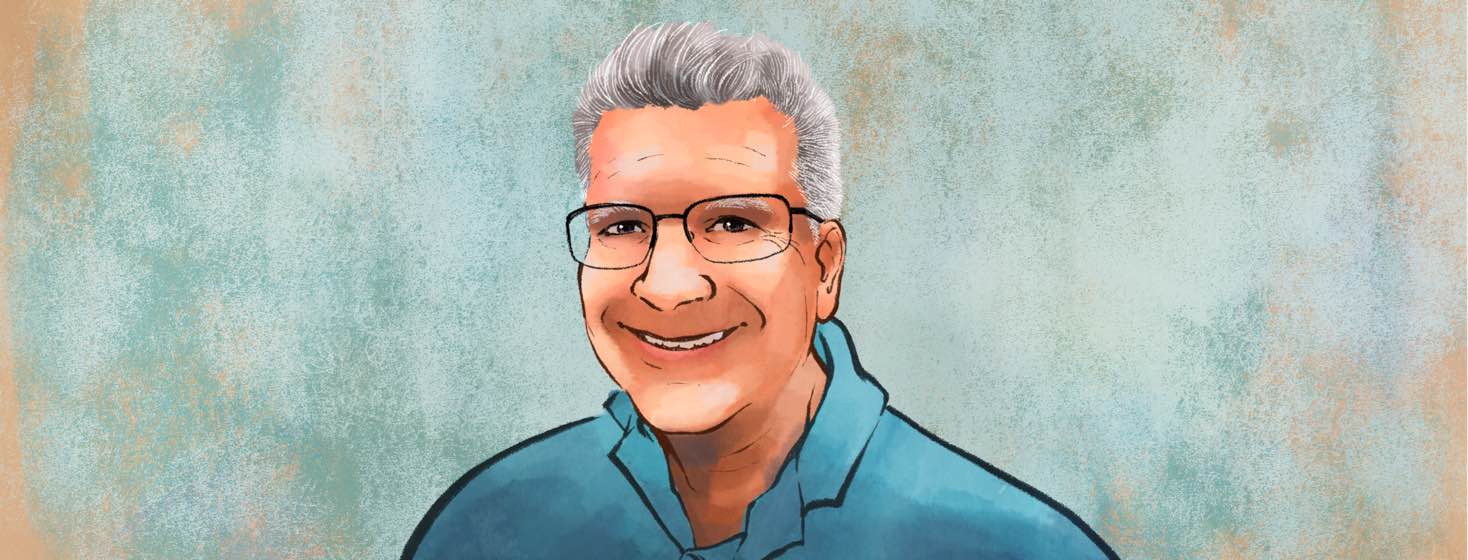How My Bladder Cancer Story Started
My bladder cancer story started in the summer of 2016, though I was not diagnosed until November 2017. The first thing I noticed was blood in my urine. I went to an urgent care clinic for testing and was told I did not have an infection but should follow up with my own doctor. When the symptom went away a couple of days later, I went on with life and didn’t give it another thought until about a year later when I noticed more blood.
I thought I most likely had a UTI
I did not have medical insurance at the time and, after doing research on the internet, I felt I most likely had a UTI and chose to “treat” it with 100% cranberry juice. In the meantime, I took a new job in Vallejo, CA. About 6 weeks after I started, seeing no improvement, I scheduled a doctor visit. The appointment was the day after my wife joined me in Vallejo. 4 days later, I would hear the dreaded words, “You have cancer.” I was ultimately diagnosed with papillary urothelial carcinoma and was told I had a 9 cm high-grade tumor.
Moving forward with aggressive treatment
I had two TURBTs in the two months following my diagnosis that indicated my cancer was at an early stage (T1 N0 M0). Despite this, I was told I should treat it aggressively due to the size of the primary tumor (9cm), the aggregated tumor mass occupying more than half the inside of my bladder, and the correspondingly high chance of recurrence. On January 26, 2018, my bladder was removed and a new “bladder” (neobladder) was fabricated for me from a 2-foot section of my intestine.
My surgery revealed secondary cancer in my prostate
The pathology following my surgery showed that I also had prostate cancer that had been previously undiagnosed. Thankfully, both cancers were determined to be independent cancer occurrences (no metastasis), and the doctors felt both had been fully treated by surgical removal. Given that, my treatment included no chemo or radiation.
How I chose a neobladder
One of the most difficult decisions I had to make was what type of urinary diversion method to choose. The input and expertise of my medical team were incredibly valuable and, based on what I heard from them, I was leaning toward an ileal conduit (urostomy), but I was also considering a neobladder. I wanted insight and perspective from men who had chosen that option.
Using social media to connect with men who had opted for neobladders
I was fortunate enough to find 2 men through social media who had opted for neobladder and were willing to talk with me about their experiences. One had an ideal “textbook” experience. The other had serious complications that added 6 challenging months to his recovery. Both men were very open with me about their experiences, sharing the good, the bad, and the ugly that I could expect. They both acknowledged that the decision regarding which diversion method is deeply personal and that I needed to fully explore all options. In the end, I felt that neobladder was the best option for me based on my age, risk tolerance, and expectations and I thank them for helping me discover that.
Surgery recovery and going back to work
Following my radical cystectomy and prostatectomy, I spent 5 days in the hospital before going home to continue my recovery. I held a management position at the time and was able to start working remotely about 3 weeks after my surgery, and I returned to the office approximately 5 weeks after my surgery. Looking back, I would have taken more time to heal before returning to work.
My tips for people going through recovery
Some tips I would offer to people going through recovery are, keep a positive attitude, develop a good support system, and be patient with yourself. Battling cancer is a life-altering experience and, though each person’s journey will be unique, it takes all of us some time to adjust to our “new normal.”

Join the conversation